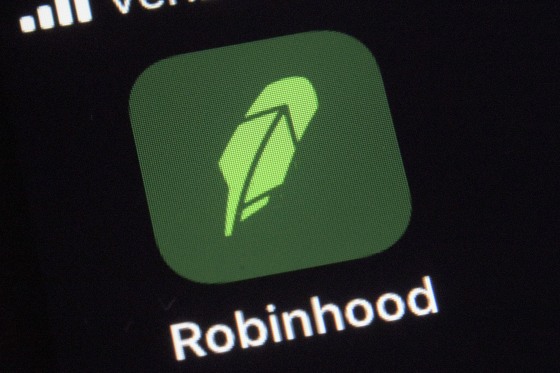Popular stock trading app Robinhood was on the lips of every pundit, politician and punter this week, riding a promise to “democratize finance” — but its denizens are in revolt and its future is uncertain after it restricted trades of GameStop and other unlikely hot stocks.
The app is a victim of its own success — and missteps.
After its users helped goose the shares of GameStop, AMC Entertainment and some other retail stocks its online boosters claimed were undervalued to meteoric levels, Robinhood on Thursday restricted their ability to make trades. Users could sell but not buy more stock as it underwent high volatility.
Rumors swirled in the information vacuum, invoking establishment forces that were supposedly pressuring the app to tighten the screws. And then, late Thursday, Robinhood revealed it had raised $1 billion from its investors to shore up liquidity and cover the unprecedented volume of trading.
"We were not forced by anyone to restrict trades," Robinhood CEO Vlad Tenev told CNBC on Thursday evening. "We did this on our own, but there was no liquidity problem. We did this proactively."
Some employees said they feared the company was straying from its mission statement according to messages posted on Blind, an anonymous message posting service that verifies corporate email addresses before allowing posting, reviewed by tech website The Information.
“This sets a horrible precedent,” one message read. The "blowback" will be like that when the app crashed during a March rally, except “on steroids," the user wrote.
Enraged users filed a proposed class action suit. Regulators have taken notice. Congress is gearing up for hearings. The Securities and Exchange Commission, the country's top financial regulator, said on Friday it would “closely review actions” by companies that “may disadvantage investors or otherwise unduly inhibit their ability to trade certain securities.”
The new heat will add questions for investors, especially since the company is planning to launch an IPO this year.
“They were totally unprepared. It appears they had not committed sufficient capital to deal with the levels of volatility,” Joshua Mitts, a professor of corporate and securities law at Columbia Law School, told NBC News by phone. “It’s not normal,” he said. “No other brokerage as far as we know needed a billion-dollar bailout.”
On Friday morning, Robinhood initially eased restrictions on the volatile stocks, allowing more purchases, and their values began to rise. But as the day wore on and trading volumes increased, it restricted users to only buying a single share of the restricted stocks, and expanded the list from 13 to over 50.
The back and forth has all been too much for some users, who posted messages saying they were switching to other apps and brokerages. Rival no-fee stock trading app Webull surged to the number two slot in the Apple App Store. Other esoteric investment assets got a lift as the enthusiasm spread to other investments. Silver ETFs shot up and prices for “Dogecoin,” a cryptocurrency based around images of a cute dog, spiked.
Despite the setbacks, the increased brand recognition for Robinhood could all be grist for the fame mill. But if the number of daily active users — a key metric for investors — plummets, the company could face serious questions from its current and potential funders.
“I’m closing out on Robinhood,” and moving to another brokerage, said Justin Reidy, a 22-year-old software developer from Missouri. “I don’t like the fact they can stop me from investing in GameStop.”
Robinhood’s reported growth has soared from 3 million to 13 million by the end of 2020. Now, the company faces an existential choice.
“They have to grapple with this fundamental inequality between retail investors and Wall Street professionals, and ask themselves whether they’re contributing to this or closing the gap. They bill themselves as the latter,” Mitts said.
“But when users are restricted from trading, due to apparent failure to comply with capital requirements, it raises questions whether they’re filling that mission. They need to be more committed to retail investors — or they’re going to see an exodus,” he said.

